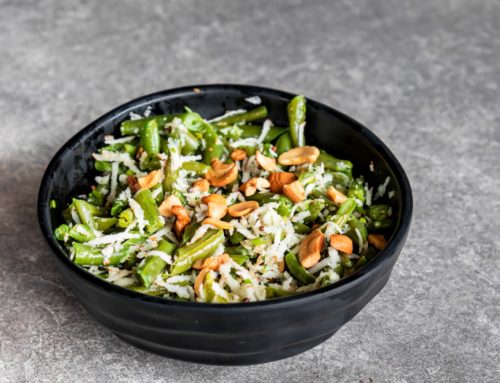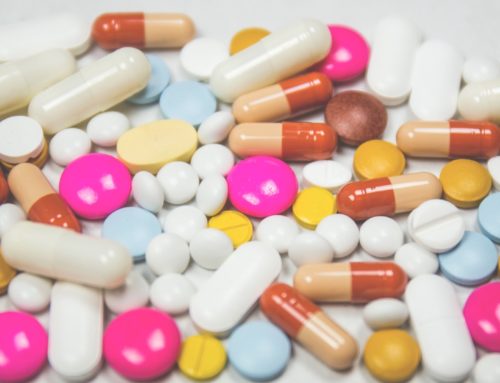Since the beginning of the pandemic, the West has seen a tremendous surge in the number of individuals subscribing, either in part or in whole, to a vegan and/or plant-based diet.
For reference:
- The sale of vegan meat alternatives, alone, increased by over 280% in the United States, during March of 2020 — namely a result of the widespread slaughterhouse outbreaks of Covid-19 that were a source of major disruptions to the factory-farm supply chain (1).
- Around 25% of Brits between the ages of 21 and 30 reportedly believe that the pandemic has made a vegan diet more appealing. This follows research by the CDC that 3 out of 4 emerging infectious diseases affecting people are to begin initially in animals, and that the animal agriculture industry is one of the largest contributors to antibiotic resistance worldwide (2).
- Lastly, this year’s Veganuary challenge for January 2021 saw a record number of 500,000 individuals signed up to participate (a 25% rise in comparison to the year prior).
And while the shift to a more plant-based lifestyle is likely the result of a variety of different factors, there undeniably seems to be some link between the onset of a global pandemic and the switch to eating more plants. The question was begged, however, of whether or not the reverse might exist, too.
In other words, does making a switch to eating more plants have anything to do with protecting against the effects of a pandemic? Well, researchers set to find out, and less than three days ago, they published their results.
Here’s what the study found (3):
- Pescatarians had 59% lower odds of developing moderate-to-severe COVID-19 infection.
- Individuals following a fully plant-based diet had 73% lower odds of developing moderate-to-severe COVID-19 infection.
- Those who reported eating a low-carb high-protein diet had a nearly 400% higher chance of having a moderate-to-severe COVID-19 infection.
“Diets based on high levels of plant foods and low levels of meat are associated with lower risks of several non-infectious conditions, including cardiovascular disease and some types of cancer, but it is unusual and intriguing to see evidence of protective effects against an acute infectious disease such as COVID-19.”
— Dr Ian Johnson, Nutrition researcher at Quadram Institute Bioscience
Now, to caveat the findings listed above, there are just a couple of facts to take into consideration…
First and foremost, the study, published in the journal BMJ Nutrition Prevention & Health, was conducted using only 2884 people. For obvious reasons, there is little that can be confidently extrapolated to a global population from a sample of this size and type (95% doctors and over 66% males).
In addition, this observational case-control study was highly dependent on the self-reported data of healthcare professionals. Self-report surveys are a method of data collection that can more commonly fall prey to social desirability bias (aka reporting oneself as healthier than reality would suggest), meaning not all information is likely to be 100% accurate.
In a similar vein, the study asked respondents to select from 11 different types of diet including “keto,” “Mediterranean,” “Palaeolithic,” “low-carb,” “vegetarian,” “whole-foods, plant-based,” “high-protein,” “low-fat,” “pescatarian,” “none of the above,” and “other.” The responses, however, were then grouped into only three categories for analysis, which were either “plant-based diets,” “plant-based or pescatarian diets,” or “low carb, high protein diets.” Again — for obvious reasons — the distinction between what the individual participants actually eat, here becomes blurred, along with the potential validity of the data.
As is the case with observational studies of this kind, it would be impossible to accurately assume that the observed correlations mentioned above have the ability to reflect real causal mechanisms when taken and applied to the real world.
For example, research shows that people who follow a vegan diet also have a tendency to drink lower quantities of alcohol and fizzy drinks. Although the study does take into account lifestyle factors such as the level of daily exercise and whether or not the participants smoked, there still remain additional characteristics that would conceivably have an impact on both the susceptibility of individuals to Covid-19, as well as the severity of the infection if/when they were to contract it.
“In short, this study is interesting, but not conclusive.”
— Dr Ian Johnson
The researchers themselves do speculate that their observations could be put down to the strengthening effect that a diet high in micronutrients and unprocessed plant-based foods has on the ability of the body’s immune system to defend itself from invading pathogens.
Ironically, this is a claim that has been adequately supported by the literature, where a direct link between the impact of viral respiratory infections and the health of the microbiota within the gut has already been established.
To dig into the science a bit more: Coronavirus, aka SARS-Cov-2, is most notably characterized by an infection in the lungs (a process that occurs through the binding of ACE2 receptors). Somewhat unexpectedly, these ACE2 receptors have been found to be expressed by the intestinal epithelial cells present within the digestive tract, giving scientists reason to believe that Covid-19 can, indeed, be impacted by changes and alterations in diet (4, 5).
So, while this study perhaps isn’t everything the vegan community might have hoped for it to be, there is still a substantial amount of evidence that supports the benefits a plant-based lifestyle has on personal health and the prevention of sickness and disease. Check out my other articles on the subject such as, “The Importance Of A Healthy Microbiome (During A Pandemic!) And How To Build One,” and “Summing Up The Science Of Nutrition In 7 Words.”
Text References:
- Nielsen Retail Measurement Services, inclusive of Nielsen’s Total Food View, Total U.S. All Outlets Combined (xAOC), 52 weeks ended May 25, 2019 vs. year-ago.
- CDC. National Centre for Disease Control and Prevention. Zoonotic Diseases.
- Kim H, Rebholz CM, Hegde S, et al. Plant-based diets, pescatarian diets and COVID-19 severity: a population-based case–control study in six countries. BMJ Nutrition, Prevention & Health 2021;bmjnph-2021–000272
- Dhar, D., & Mohanty, A. (2020). Gut microbiota and Covid-19- possible link and implications. Virus research, 285, 198018.
- Groves H.T. Respiratory viral infection alters the gut microbiota by inducing inappetence. mBio. 2020;11(1):1–17. doi: 10.1128/mBio.03236–19.





